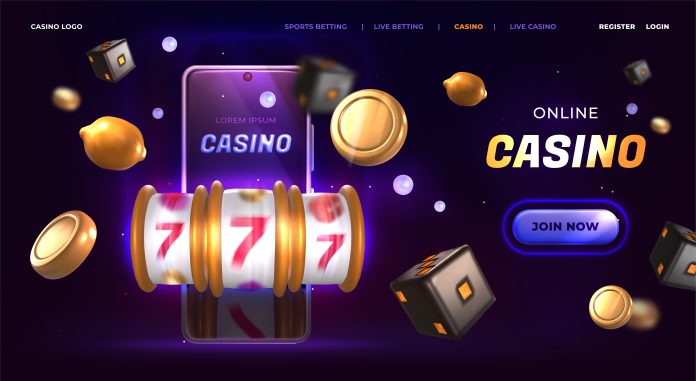
Yoodley is reader-supported. When you buy through links on our site, we may earn an affiliate commission.
Gaming consoles have long been associated with action, adventure, sports—and yes, the occasional mini-game. But how do slots and slot-machine-style games fit into that ecosystem? Are they full casino games? Just simulations? Or something in between? Let’s dig in.
What “slots” and “slot machines” mean in a console context
When we talk about “slots” on consoles, we usually mean one of three things:
- Simulations or arcade-style recreations of slot machines: no real money, purely for entertainment or in-game rewards.
- Social casino games: free-to-play or microtransaction-based games that mimic the aesthetics and mechanics of casino slots, but with virtual currency.
- Real-money gambling: rare or non-existent on mainstream consoles, due to technical, legal, and policy barriers.
Simulation and social casino types are almost always safe from the legal storms that real gambling stirs up. As reports by Stranaby show, platform holders tend to draw a clear line between entertainment and actual wagering. The laws governing gambling vary heavily by jurisdiction, and consoles operating globally tend to avoid enabling real-money slots to stay compliant and avoid risks.
Current console offerings: simulation vs real gambling
There are slot-style games on consoles—most of them are virtual, not involving real cash.
- The Four Kings Casino & Slots on Xbox is a prominent example: it offers slots, roulette, poker, etc., but without real-money gambling. It’s a social casino / virtual casino experience.
- On PlayStation and other platforms, there exist many casino-themed games, slot simulations, free-to-play slot apps, and games with in-game currency systems. These allow players to spin reels, earn virtual chips, maybe participate in leaderboards or events.
- Historically, older consoles (SNES, NES, etc.) had games that featured slot machines as part of a larger casino setting—think mini-games, adventure/casino crossovers. Titles like Vegas Stakes are examples.
In all of these, real money exchange (betting, winnings) is generally absent. Platform policies, store rules, payment systems, and legal frameworks make true gambling on console extremely rare.
Legal & ethical constraints: why real-money slots are largely absent
Real-money gambling raises major complications in three dimensions: platform policy, law/regulation, and ethical/social risk.
- Platform policy: Sony, Microsoft, Nintendo have strict guidelines around what kinds of gambling mechanics are allowed in their digital stores. Many disallow anything that resembles real betting unless it’s strictly regulated.
- Regulation: Laws differ wildly by country and region. Gambling is heavily regulated; liability is high. Issues like age restrictions, licensing, taxation, fairness/audit of RNG (random number generators) are complex to comply with globally.
- Ethical concerns: risk of exposing minors, addiction concerns, predatory monetization. There’s often public or legislative pushback when games mimic gambling too closely.
Because of all that, the consoles tend to host social casino-style slot games that are “fun, not finance.”
The rise of “skill games” and simulated gambling features
There is a growing phenomenon of skill games—games that resemble slot machines, even often look almost identical, but that include some element of player interaction or decision that proponents argue reduces the purely chance-based nature.
- Some jurisdictions are already debating how to classify these machines, whether as gambling devices or not, and whether to regulate them.
- On consoles, equivalents show up in games that have randomized loot boxes, chance-based rewards, or gamble-like mechanics (spin-to-win, gamble choices). These are allowed in many cases, but regulated via age ratings, store policies, and caution over in-game purchases.
- The “grey areas” can become flashpoints: for example, debates about whether a simulated slot game with significant microtransactions is just entertainment or something bordering on gambling. Some games get banned or restricted in certain regions if judged too close.
User experience: how console slot-style games are designed and monetized
When you play slot-style games on a console, you’re getting:
- High production value visuals: polished graphics, animations, good sound design, possibly 3D casino lobbies or virtual avatars. The goal is immersion, even if there’s no real-money at stake.
- Social features: leaderboards, multiplayer virtual casino rooms, cosmetic upgrades, avatars, seasonal events. The social component adds retention and engagement.
- Monetization via virtual currency, in-game purchases, cosmetic items, maybe boosters or extra spins. Players are paying for experience, not odds. That shifts the revenue model significantly.
It’s important to note: many players want realism—what makes slots exciting (lights, spins, bonus rounds)—but without legal or financial risk. Console games deliver that in spades.
What the future might hold
Looking ahead:
- We may see shifts in regulation that allow more controlled real-money casino-style games on consoles, especially in jurisdictions with mature gambling laws.
- Technologies like VR and AR might push consoles (especially VR hardware) to create immersive casino environments. Imagine walking in a virtual casino with others, spinning reels, interacting with dealers—all in simulated space.
- Cross-platform integration could allow social slot games on consoles to sync with mobile or PC versions, sharing rewards, progress.
- There’s also likely to be more pressure from consumers for transparency (odds, fairness), stricter age gates, and better regulation of microtransactions and chance mechanics.
Slot-style gaming on consoles sits squarely in the zone between entertainment and gambling. For now, the balance is tipped toward entertainment and simulation—with occasional flirtations with risk-adjacent features carefully controlled by policy and law.






